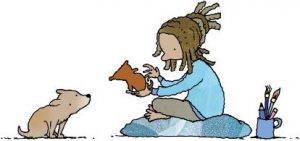The International Day of Families is held on 15 May every year.
The day was proclaimed in 1993 by the United Nations General Assembly and reflects the importance the international community attaches to families, enabling time to celebrate the importance and role of families in society.
Although families all over the world have transformed greatly over the past decades in terms of their structure, the United Nations still recognises the family as the basic unit of society. The Day also provides an opportunity to promote awareness of issues relating to families.
This year, Good Grief have provided an resource titled “Children and Change and Loss”:
 When a child is grieving it is natural to want to support them. Yet, we often feel very uncertain about how best to do so. Perhaps you feel uncomfortable about discussing loss and grief, worried whether your child’s behaviour is normal, and unsure what you can do to help. This fact sheet offers some guidance for adults (parents, carers, relatives, teachers and others) to help you support a child who is grieving and nurture them to grow through the experience.
When a child is grieving it is natural to want to support them. Yet, we often feel very uncertain about how best to do so. Perhaps you feel uncomfortable about discussing loss and grief, worried whether your child’s behaviour is normal, and unsure what you can do to help. This fact sheet offers some guidance for adults (parents, carers, relatives, teachers and others) to help you support a child who is grieving and nurture them to grow through the experience.
What is grief?
Grief is the human response to change and loss in our lives, such as the death of someone we love, parental separation or other major change. It is a natural and normal response, which has a physical impact on our bodies as well affecting our emotions and our thinking. Grief challenges the way we think about ourselves and the world, and influences our spirituality and relationships.
How do children express grief?
Like adults, children express grief in unique and personal ways. This can be influenced by a child’s age and understanding of the loss, but also by other factors such as their character, situation or experience. Some children may openly express their hurt, while others may withdraw. Many children also dip in and out of grief, alternating between grieving and more playful behaviour. It is important to remember that grief is a normal and natural response and that there is no right or wrong way to grieve. Some (not an exhaustive list) of the reactions children may experience…
Please continue reading below:
